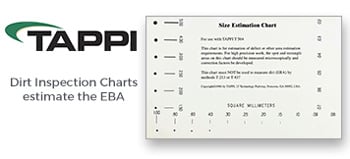Factors affecting particulate removal efficiency of kraft recovery boiler electrostatic precipitators: a technical review, TAPPI JOURNAL May 2018
ABSTRACT: Electrostatic precipitators (ESPs) are used in most pulp mills to remove particulate from recovery boilers, power boilers, and lime kilns. As environmental regulations have become increasingly stringent in recent years, maintaining high ESP performance is of vital importance in mill operation. This paper discusses results of a literature review of the ESP technology used in industrial combustion units, including recovery boilers, as well as results of a parametric study using the well-known Deutsch-Anderson equation to correlate recovery boiler operat-ing conditions with ESP collection efficiency. The results show that for particles up to about 0.3 μm, the ESP collec-tion efficiency decreases drastically with increased particle size and with decreased temperature. For particles larger than 0.5 μm, however, the trend reverses; the collection efficiency increases with increased particle size and decreased temperature. The results also suggest that the particle concentration (or loading) in the flue gas has no effect on collection efficiency and that sodium chloride particles are more readily captured than sodium sulfate par-ticles. The latter prediction, however, appears to be in contradiction with mill experience that sodium chloride parti-cles are more difficult to capture.
Application: Mills can maximize their boiler throughputs by better understanding key operating factors that affect electrostatic precipitator performance.
TAPPI conference proceedings and presentations, technical papers, and publication articles provide technical and management data and solutions on topics covering the Pulp, Paper, Tissue, Corrugated Packaging, Flexible Packaging, Nanotechnology and Converting Industries.
Simply select the quantity, add to your cart and your conference paper, presentation or article will be available for immediate download.





